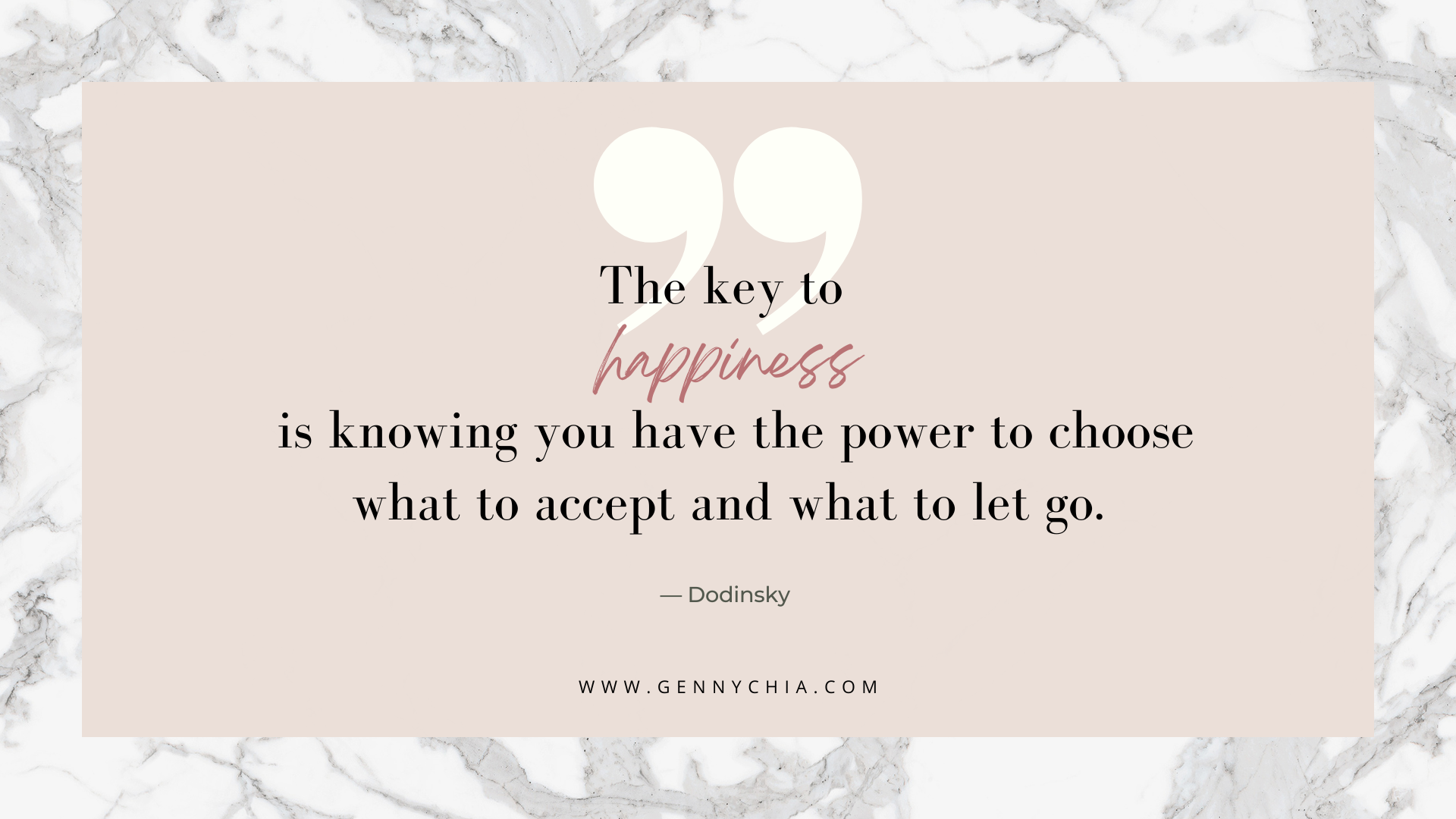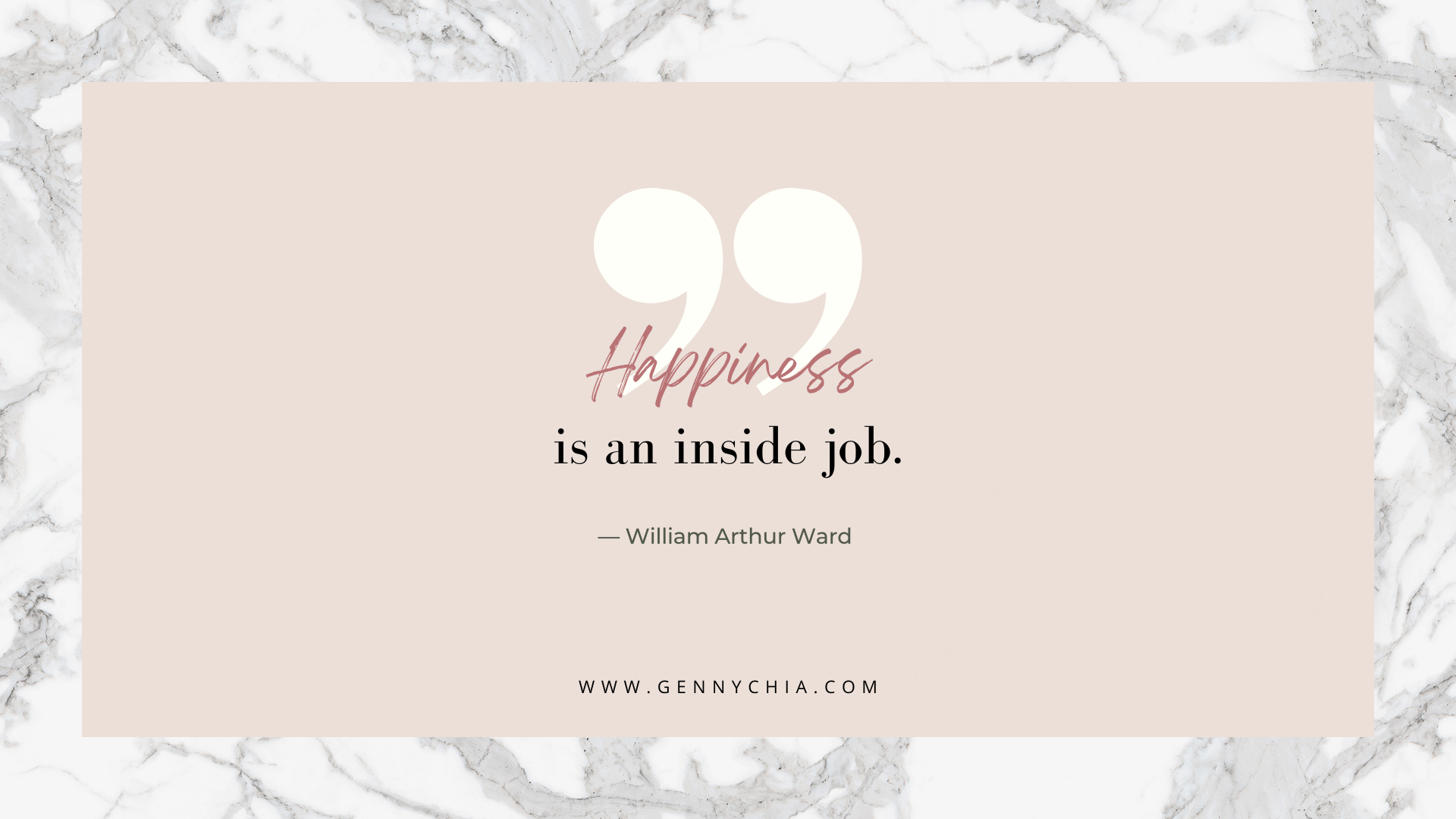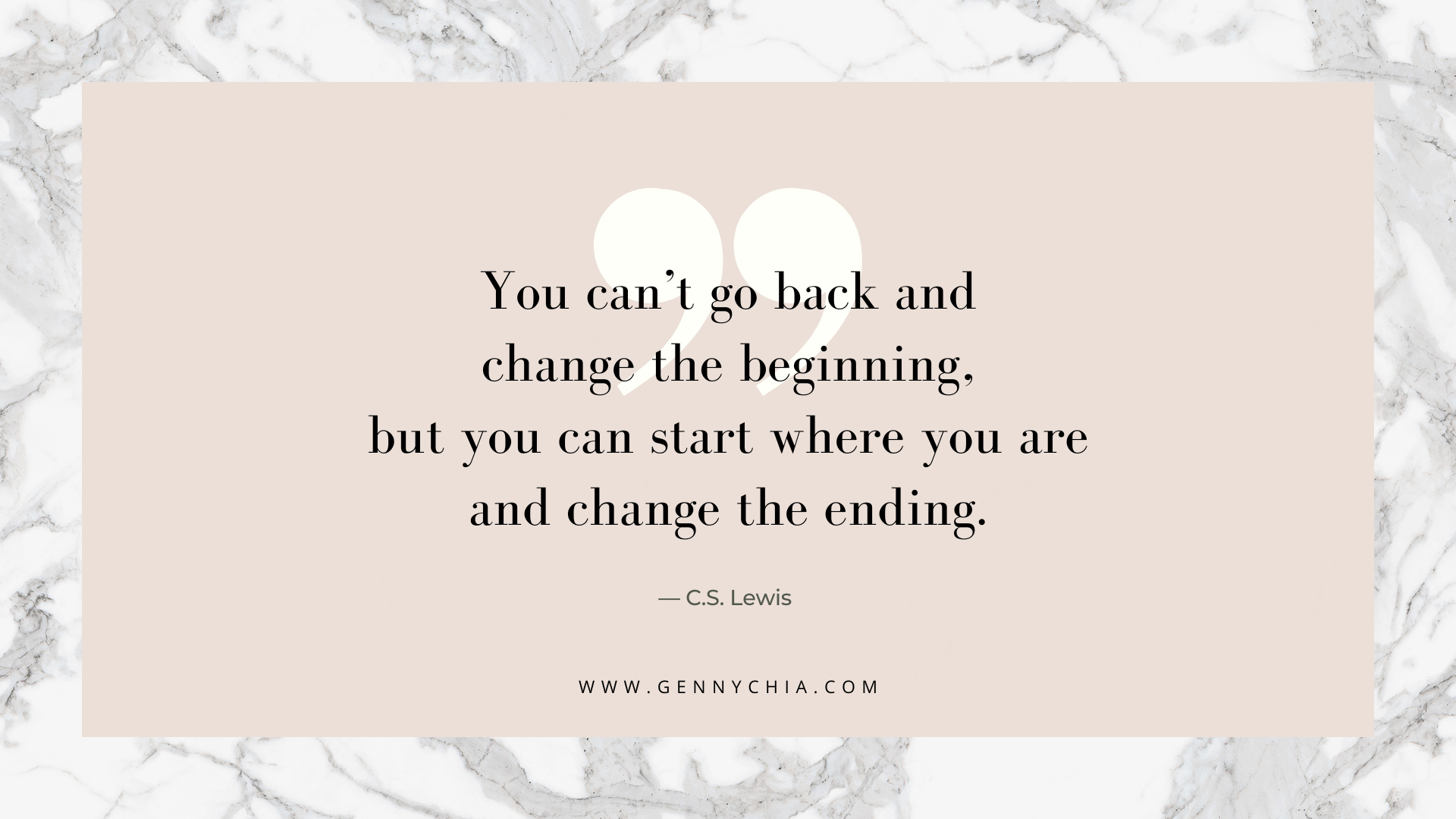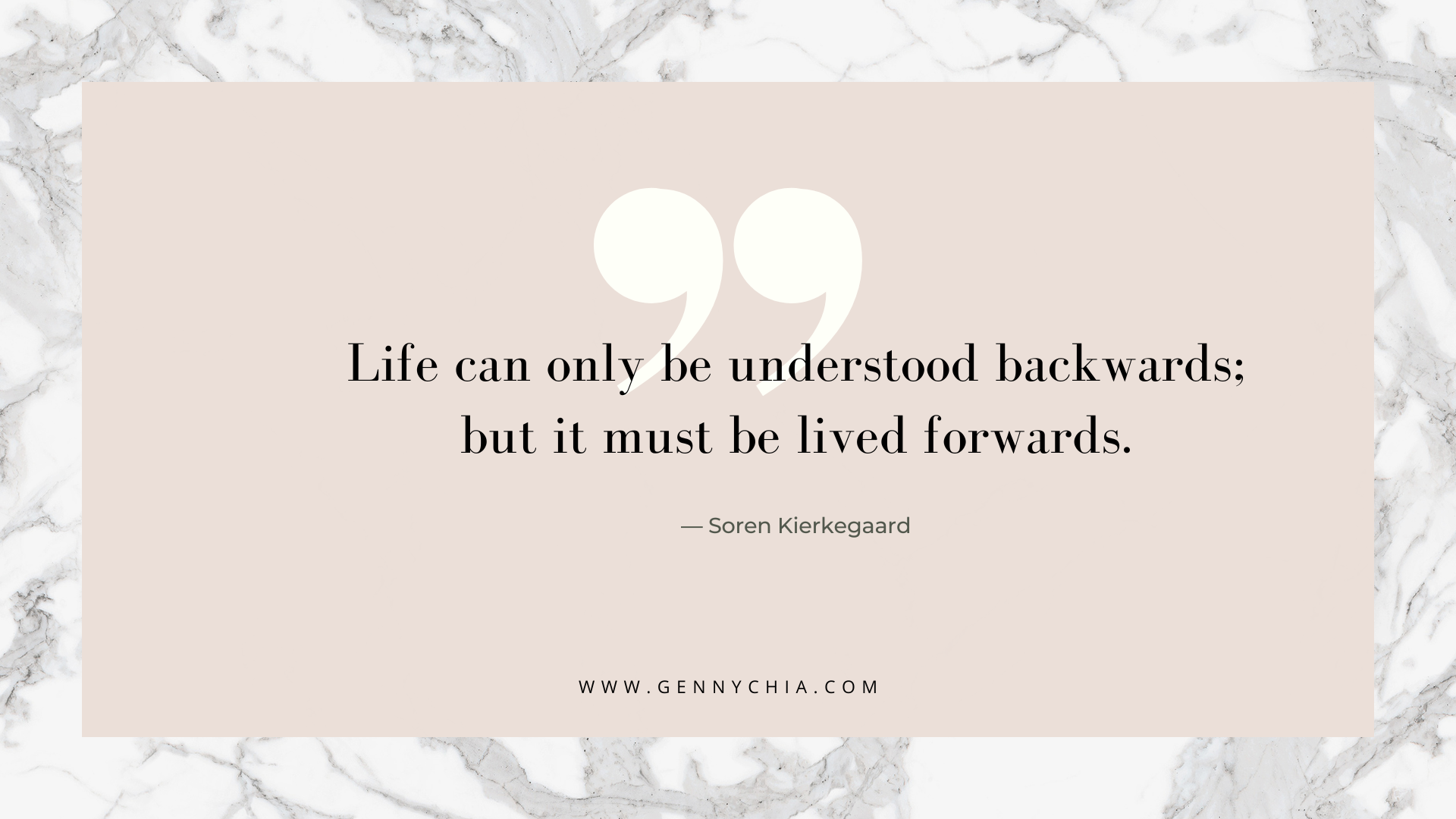How to Live Life With No Regrets
Dec 07, 2022
Imagine being at the end of the road and looking back only to be consumed with regret. No one wants that. Living a life of no regrets doesn't mean living a perfect life. It means having the courage to embrace your power of choice to create a truly meaningful and fulfilling life and be aware of the sacredness of time.
This blog post is, in fact, inspired by one of my favourite books, 'The Top Five Regrets of the Dying' by Bronnie Ware. Ware is an Australian nurse who spent several years working in palliative care. Taking care of patients in the last 12 weeks of their lives, Ware gathered insights and recorded their dying epiphanies in her blog, which gathered so much attention that it led to her book. "When questioned about any regrets they had or anything they would do differently," she says, "common themes surfaced repeatedly."
The messages are no rocket sciences, yet they are so powerful and poignant. This book is filled with essential life lessons that most of us never seem to heed or understand until it's too late. The visions people gain at the end of their lives, and their wisdom highlighted in the book provide me with the discernment of what it means to me to honour my heart to live a 'regret-free living'.
Given this time of the year as we look ahead to a brand new 2023, I hope these tips I'm sharing can offer some ideas and discernment on how you can kickstart a conscientious effort to living a regret-free life filled with happiness and joy.
1. Live a life that is true to your value authentically
Societal pressure is hard to go against, especially when coming from close relationships. Their expectations tend to weigh heavily on decisions for your future.
It may also be from the fear of being an outcast or being perceived as inconsiderate, but living a life where everyone gets a say is not living. Have the courage to live the life you love and know it is not selfish. Making decisions that prioritise your goals and aspirations, even against the advice of other people (especially your loved ones), may be easier said than done.
The key lies in helping those who care about you and think otherwise of what you should do understand how living a life that is purposeful and meaningful to you can help you become the better person you wish to be. And how living a life that fulfils the expectations of others and these well-meaning presuppositions based on their personal values but didn't quite align with yours is not fulfilling to you.
Ultimately, it's your life, and you're bearing all the consequences of your choices. It won't always be a victory, and there will be challenges you must overcome along the way. At least it will be on your terms and not someone else's.
2. Let yourself be happy

Happiness is a choice. Many do not realise that it is a choice we can make until it is too late. Are you allowing yourself to be happy? If you're not, it's time you be happy.
Are you embedded in habits and ways of living? Do you find comfort in repeating patterns of behaviour and doing what others expect of you? You allow the apparent 'comfort' of familiarity to take over your emotional and physical lives. You're not open to exploring the myriad of other 'happy' options.
You don't just 'let yourself be happier' by being open to positive feelings. You can actively seek out the positive in your everyday lives. You can do the little things that make you happy. Connecting with people who matter to you, staying active and remembering to feel grateful every day for all the good things in your lives. These are all healthy habits that can be cultivated if you really make an effort and stay open to possibilities.
3. Distinguish real happiness
What is happiness to you?
Is happiness all about success and power to you?
We all love triumphs and victories and that feeling like we're on top of the world. However, the joy of success is temporary because no success is permanent. After a particular achievement, what's next? You may be left with a stronger desire for a bigger success. It's a never-ending moving goalpost.
Real happiness is about celebrating with others in their moments of happiness and meaning it. How are you taking joy in the achievement of others? There is no feeling of inferiority and superiority in real happiness. Real happiness will remain elusive if you are constantly judging yourself against others. If you can gain joy from others' successes, you've discovered a secret of real happiness.
The happiness of self-work is not in success, nor achievements. Rather, the magic lies in achieving the outcomes that provide you with a fulfilling and joyful life resulting from creating a better self and watching yourself go from strength to strength. The joy of self-transcendence is not confined to winning and conquests. Rather, the abiding journey of self-discovery and the surprises you give yourself from your personal growth and progress that led you to your fulfilling attainments.

4. Dedicate time to understanding yourself and becoming more self-aware
To live a life true to yourself, you would first have to find your truest self. Many things can hinder people from being self-aware, like the fear of being vulnerable, change, or even being wrong. But without becoming self-aware, the possibility of living a life filled with regrets will grow.
It might be uncomfortable initially, but opening yourself to being aware of what's going on in your mind is crucial for growth.
A proven way of doing this is through meditation. Meditation is an excellent way to find yourself and to understand who you're and what matters to you. It's a way to connect with yourself. And through a better connection to self, create better connections with others.
5. Have patience and find your priorities
In an age where achievements define a person's success, working over the top in one's field of profession is almost required. Most of the time, at the expense of personal relationships, experiences, and happiness outside of work. These professional milestones are impossible to reach without having work as the number one priority in your life. But these only define the person others see, not how you will.
Having clarity of your priorities that are aligned with your purpose and values is crucial to living a life with no regret. We're all living busy life these days, and it is vital to be engaged in meaningful work. It's challenging to complete everything on our to-do list, multi-tasking and getting to perfection in every role we play. Once you've got a deeper understanding of why something is important to you, it's easier to follow through with getting it done.
Getting caught up in the everyday busyness can cloud your vision around what's most important to you. Gaining clarity so that you can set priority starts with you. You've to first commit to finding your purpose and value so that you can start running your own race and focus on what truly matters.
6. Be the first to reach out
If, at this point, after some self-reflection, you realise now that you've been working too hard and find it hard to reconnect, breathe.
Perhaps, it's time you reconnect with people around you, especially after the pandemic or people you value but have lost touch with over the years. Reigniting relationships is not a waiting game. Rather than expecting others to make the first move, send your friends text messages to ask how they are doing. Showing that you care may mean a lot more to them than you think, so don't underestimate the effect of a kind and thoughtful message and what it may do to bring you closer to others around you.
A vital component of health and well-being comes from the meaningful relationships we share with people around us. Studies have shown that strong relationships contribute to a long, healthy, and happy life. A review done on 148 studies found that people with strong social relationships are 50% less likely to die prematurely (Holt-Lunstad et al., 2010). Relationships are one of the most important aspects of our lives, yet we often forget just how crucial our connections with others are for our physical and mental health and well-being.
People who are more socially connected to others around them are happier, physically healthier, and live longer, with fewer mental health problems than people who are less well connected.
It's not whether you're in a committed relationship or the number of friends you have. What matters is the quality of your close relationships. Living in conflict or within a toxic relationship is more damaging than being alone. Hence, it's not about being with people. Instead, the meaningful relationships we share with others play a huge role in maintaining our mental health and well-being.
For this reason, I hope that you're always surrounded by people who inspire you to be your personal best, and they truly care and are willing to make a difference in your life.
7. Explore using a daily journal

Reflections through journaling allow thoughts to surface, silencing the hustle and bustle of the world. Only you and your thoughts exist at that very moment. Journaling gives these thoughts an outlet, and paying attention to your thought processes can offer deep insights when examining and understanding your thoughts.
Journaling over a long period is also a form of reflection. You'll be able to see how you grow over time.
8. Let go of bygone regrets
Are you punishing yourself for the past, consciously or unconsciously? Or are you still feeling the pain inflicted by someone you once cared about? You regretted not trusting your instinct and had placed your trust in the wrong person. You wish you had stood up for yourself and protected your boundaries, which you did not. You allow regret, guilt, and shame to convince you that you don't deserve to be happy. It is time you let go and let be.
A regret-free life is about learning what you can do better, taking lessons from the events and releasing the past. Identify what made you regret these actions or even inaction and grasp how it affected you and the others who were caught in the process.
Mending relationships is just as crucial as finding closure. The journey can be uncomfortable, yet they play a vital role in maintaining your well-being and living a regret-free life.

9. Forgiving yourself and taking responsibility
It can be hard not to have regrets, and it's about self-compassion and forgiving those versions of you. Taking responsibility for those actions and facing who you were at that stage of your life is another difficult one. But think about it, living a life of repeated patterns that are ineffective or living a life that is not fulfilling or meaningful and wishing that things could be otherwise, wouldn't that be even more painful? Einstein once said that insanity is doing the same thing over and over and expecting a different result.
Deciding that we can do better and deliberate effort made over wishful thinking fosters a new level of strength and resilience. This is provided we allow ourselves to reflect and not create excuses and biases that are self-serving and miss the opportunity for growth that harnesses the aptitude necessary to create a better future for ourselves and the people around us through becoming a better self.
Forgiving yourself means you now know how you want to live your life and move forward. It's accepting the mistakes made and taking responsibility for your healing and personal growth.
10. Look towards the future with learnings from the past
You live, learn, and with the right mindset, you master the art of letting go, which could help you live life to the fullest. Coming to terms with the past makes you stronger. Moving forward isn't always easy. But dwelling in the past or the inability to take the humbling lessons would be even more costly. Learning from the past is necessary to become better to achieve a regret-free life.

So, what are you willing to do today to live a courageous life that could leave you regret-free? Are you choosing to do what's right for you, prioritise what you value and safeguard everything you treasure fearlessly? After all, it is never easy to be committed to choosing to do what's right, than what's easy. That said, nothing can be worse than having regrets, looking back in time, and telling yourself, 'I should have...' and 'it could have been...'.
Step forward to the future as your truest self. As you read this, you're presented a choice to continue how you are or to take a leap of faith. Take these lessons with you if you've chosen the latter and your life with no regrets has officially begun.
Thank you for spending time with me here.
Do you have a question for me or a topic you'd like me to cover? You may ask away using the form below.
With gratitude,

The content of this website is not meant to substitute any advice provided by medical professionals. If you suspect that you're facing mental-health related problems, you're strongly encouraged to seek professional help.
Reference:
Holt-Lunstad J, Smith TB, Layton JB (2010) Social Relationships and Mortality Risk: A Meta-analytic Review. PLoS Med 7(7): e1000316. https://doi.org/10.1371/journal.pmed.1000316





